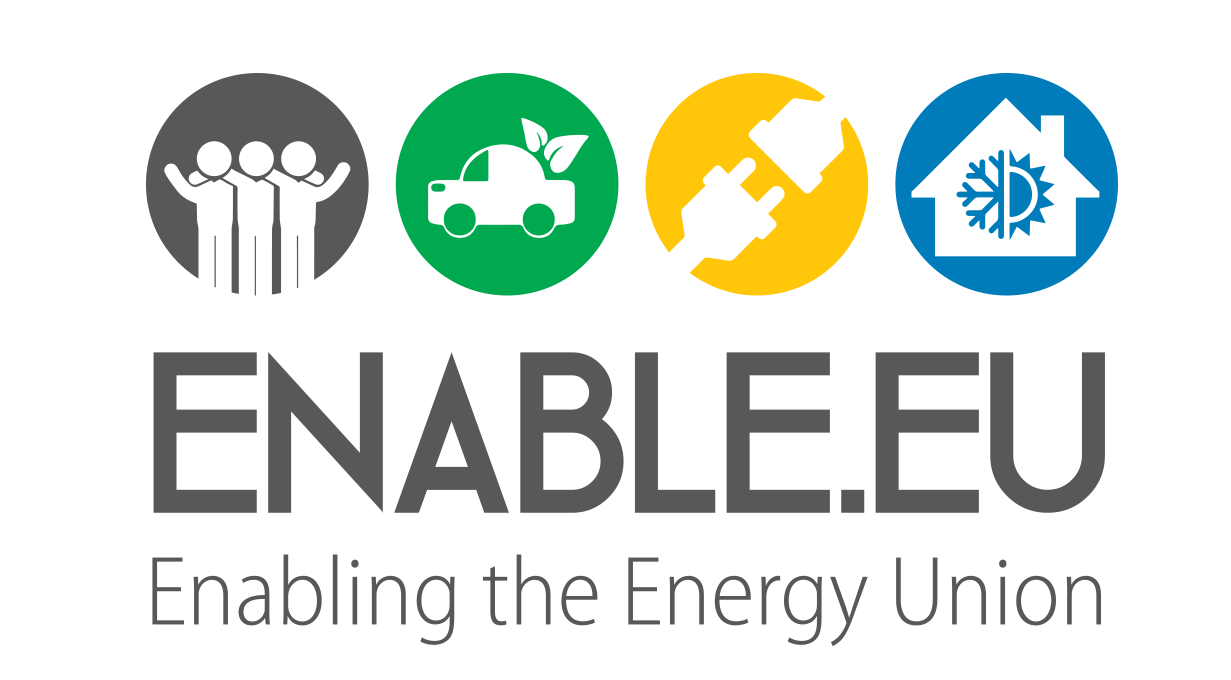What are the challenges we face in transitioning to cleaner, more sustainable energy? How can we nudge consumers towards better choices?
 ENABLE.EU – Enabling the Energy Union, funded by the European Commission’s Horizon 2020 programme, wants to find out the answer to these questions. The thing is, how we make decisions in various energy-related areas, from how to get to work to how we heat our homes, is not always as logical and clear-cut as it would seem. That is, it’s not a straightforward question of costs vs. benefits, but rather a more complex equation that includes such hard-to-quantify variables such as social approval and cultural norms. For example, even if biking or taking public transport is less expensive, healthier, and more sustainable than taking a private car to work, in geographical areas where car use is associated with higher social status or among generations where car use is associated with positive values such as freedom or control, the transition to public transport or cycling may be slower and more challenging to implement. This means that if we want to facilitate the transition to clean energy, we’re going to have to really understand how people think about energy, what goes through their minds when they turn on the heat or switch off a light, the psychological and social factors underlying their choice of transport. Things like loss aversion – we’d rather avoid a change that may entail a potential loss (economic or social), even if in the long run, it might benefit us or benefit society overall. Or things like conformity and social pressure – if all your neighbours have installed solar panels on their roofs and bike to work, you are likely to do so as well. This sort of knowledge can help everyone from decision makers in government and businesses to researchers at NGOs and universities understand how people really think, leading to more accurate predictions of people’s behaviour and more successful policies. Ultimately, it will bring about an energy transition that is driven by citizens empowered to make their own choices, rather than being passive recipients of regulations imposed from above.
ENABLE.EU – Enabling the Energy Union, funded by the European Commission’s Horizon 2020 programme, wants to find out the answer to these questions. The thing is, how we make decisions in various energy-related areas, from how to get to work to how we heat our homes, is not always as logical and clear-cut as it would seem. That is, it’s not a straightforward question of costs vs. benefits, but rather a more complex equation that includes such hard-to-quantify variables such as social approval and cultural norms. For example, even if biking or taking public transport is less expensive, healthier, and more sustainable than taking a private car to work, in geographical areas where car use is associated with higher social status or among generations where car use is associated with positive values such as freedom or control, the transition to public transport or cycling may be slower and more challenging to implement. This means that if we want to facilitate the transition to clean energy, we’re going to have to really understand how people think about energy, what goes through their minds when they turn on the heat or switch off a light, the psychological and social factors underlying their choice of transport. Things like loss aversion – we’d rather avoid a change that may entail a potential loss (economic or social), even if in the long run, it might benefit us or benefit society overall. Or things like conformity and social pressure – if all your neighbours have installed solar panels on their roofs and bike to work, you are likely to do so as well. This sort of knowledge can help everyone from decision makers in government and businesses to researchers at NGOs and universities understand how people really think, leading to more accurate predictions of people’s behaviour and more successful policies. Ultimately, it will bring about an energy transition that is driven by citizens empowered to make their own choices, rather than being passive recipients of regulations imposed from above.
But how can we figure out what the driving forces are behind people’s energy choices, and how these differ across Europe?
ENABLE.EU has already published an extensive literature review on the topic, and is now conducting a massive household survey in eleven countries to better understand how people think about and use energy, and to grasp the social, psychological and cultural influences on these choices. This will be followed by case studies that will look at energy behaviour and the various options and solutions that could be used to increase the adaptation of low carbon alternatives. People’s choices will be analysed, and several policy scenarios will be posited to try to understand what different energy futures might look like, and how these match up with the EU’s energy targets. A series of policy recommendations will be drafted that take into consideration the impact of social norms, belief systems and everyday experiences on energy use. Because it is Europe’s citizens – their attitudes, their needs and their habits – that ultimately will determine how quickly and how successfully Europe makes the switch to low carbon energy.
